Refine search
Actions for selected content:
5 results in A Clinician's Brief Guide
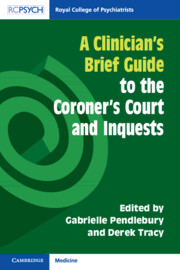
A Clinician's Brief Guide to the Coroner's Court and Inquests
-
- Published online:
- 14 November 2024
- Print publication:
- 21 November 2024
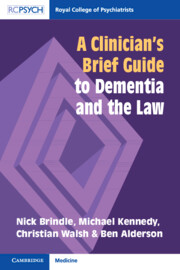
A Clinician's Brief Guide to Dementia and the Law
-
- Published online:
- 20 July 2023
- Print publication:
- 03 August 2023
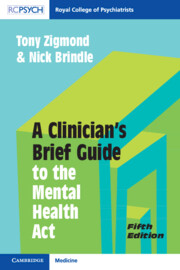
A Clinician's Brief Guide to the Mental Health Act
-
- Published online:
- 03 June 2022
- Print publication:
- 09 June 2022
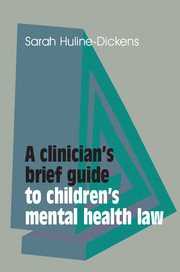
A Clinician's Brief Guide to Children's Mental Health Law
-
- Published online:
- 02 January 2018
- Print publication:
- 06 October 2016
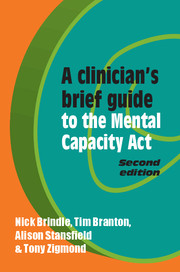
A Clinician's Brief Guide to the Mental Capacity Act
-
- Published online:
- 01 January 2018
- Print publication:
- 01 July 2015
